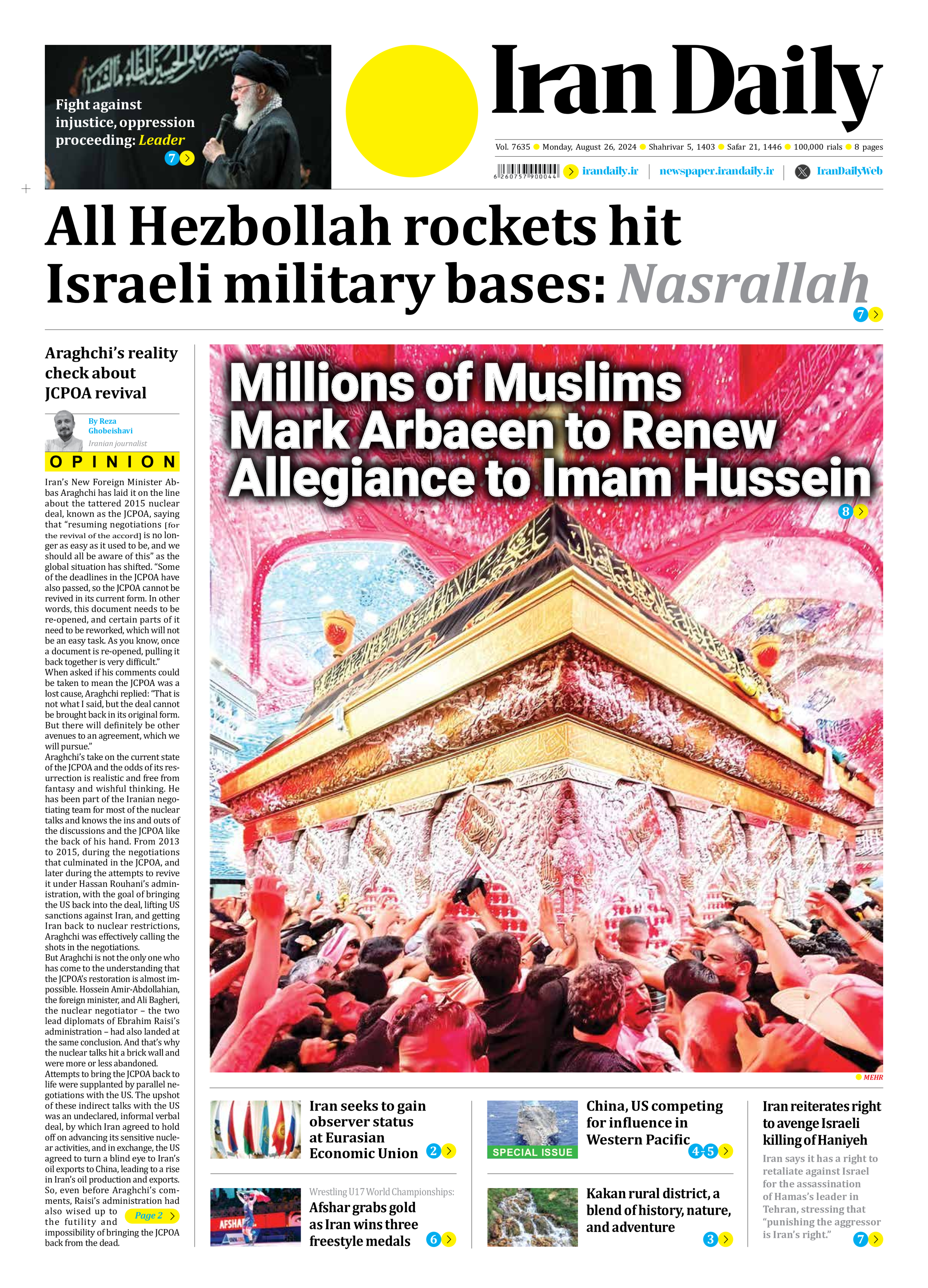
Araghchi’s reality check about JCPOA revival
By Reza
Ghobeishavi
Iranian journalist
Iran’s New Foreign Minister Abbas Araghchi has laid it on the line about the tattered 2015 nuclear deal, known as the JCPOA, saying that “resuming negotiations [for the revival of the accord] is no longer as easy as it used to be, and we should all be aware of this” as the global situation has shifted. “Some of the deadlines in the JCPOA have also passed, so the JCPOA cannot be revived in its current form. In other words, this document needs to be re-opened, and certain parts of it need to be reworked, which will not be an easy task. As you know, once a document is re-opened, pulling it back together is very difficult.”
When asked if his comments could be taken to mean the JCPOA was a lost cause, Araghchi replied: “That is not what I said, but the deal cannot be brought back in its original form. But there will definitely be other avenues to an agreement, which we will pursue.”
Araghchi’s take on the current state of the JCPOA and the odds of its resurrection is realistic and free from fantasy and wishful thinking. He has been part of the Iranian negotiating team for most of the nuclear talks and knows the ins and outs of the discussions and the JCPOA like the back of his hand. From 2013 to 2015, during the negotiations that culminated in the JCPOA, and later during the attempts to revive it under Hassan Rouhani’s administration, with the goal of bringing the US back into the deal, lifting US sanctions against Iran, and getting Iran back to nuclear restrictions, Araghchi was effectively calling the shots in the negotiations.
But Araghchi is not the only one who has come to the understanding that the JCPOA’s restoration is almost impossible. Hossein Amir-Abdollahian, the foreign minister, and Ali Bagheri, the nuclear negotiator – the two lead diplomats of Ebrahim Raisi’s administration – had also landed at the same conclusion. And that’s why the nuclear talks hit a brick wall and were more or less abandoned.
Attempts to bring the JCPOA back to life were supplanted by parallel negotiations with the US. The upshot of these indirect talks with the US was an undeclared, informal verbal deal, by which Iran agreed to hold off on advancing its sensitive nuclear activities, and in exchange, the US agreed to turn a blind eye to Iran’s oil exports to China, leading to a rise in Iran’s oil production and exports.
So, even before Araghchi’s comments, Raisi’s administration had also wised up to the futility and impossibility of bringing the JCPOA back from the dead.
Page 2







